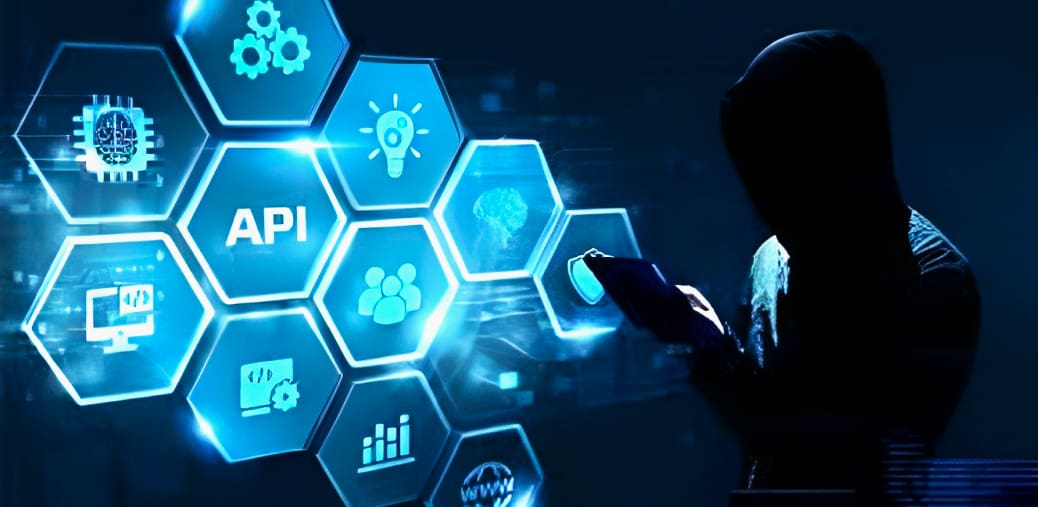Protecting Against Cyberthreats: In the Digital Age, Cybersecurity Certifications Are Essential

The ubiquity of cyber threats and hacking events is an indisputable truth in our fast changing digital society. Obtaining a cybersecurity certification is a crucial first step for anyone working in the field of information technology (IT) to become proficient in protecting against security flaws.
These prestigious qualifications help to preserve your company’s integrity and reputation in addition to improving your employment possibilities. Although earning a credible cybersecurity certification requires financial outlay, the benefits in the form of improved abilities and employment prospects make the investment worthwhile.
Recognizing the Significance of Cybersecurity Certifications
Certifications in cybersecurity provide as concrete evidence of a person’s deep understanding of topics like hacking and cyberattacks. They also indicate a thorough comprehension of the tactics and best practices for maintaining corporate security and privacy.
IT workers may advance their skill set by obtaining certifications, which provide them access to extensive training modules and test preparation resources. The resultant competence helps people individually and gives the organizations they represent more legitimacy.
Clearing Up the Myths Around Cybersecurity Certification Duration
Certification programs range in length; some provide multiple-day or multiple-part modules in different forms, such as hybrid, online, or in-person. While many certificates do not need formal training, they do encourage individuals to self-study.
The Finest Cybersecurity Certification Offerings:
CompTIA Security+
CompTIA Security+ is a well recognized certification that validates essential cybersecurity abilities. It fulfills the requirements of DoD 8570 compliance and acts as a stepping stone to mid-level positions. The program offers technical competence across several fields and incorporates real-world experiences.
Exam duration: 90 minutes; accessible both in-person and online through Pearson VUE.
Benefiting parties include IT auditors, security engineers, analysts, network and cloud engineers, and IT project managers.
Microsoft Certified: Identity Fundamentals, Compliance, and Security
This certification is suggested for those who are familiar with Microsoft Azure and Microsoft 365 and is ideal for those who want to have a thorough grasp of Microsoft’s Security Compliance and Identity (SCI) solutions. There are several choices for exam preparation that accommodate different learning styles.
Exam completion time is allotted for forty-five minutes.
Benefitous for: Students studying cybersecurity, IT workers looking to upgrade their certifications, and everyone curious in Microsoft’s SCI products.
Professional in Certified Information Systems Security (CISSP)
The intermediate-level CISSP certification, which is offered by (ISC)2, is well-known in the cybersecurity industry. It is intended for professionals who work in security design, implementation, and management; in order to be eligible, candidates must have at least five years of relevant experience.
Exam time: Four hours to finish.
Benefiting parties include C-level executives, information security directors, analysts, managers, architects, consultants, and security systems engineers.
Manager of Certified Information Security (CISM)
This ISACA certification offers tactical expertise in information security governance, risk and incident management, and program creation, and is intended for security professionals who aspire to managerial roles. Experience in the sector full-time is required.
Five years of full-time job experience in security management are needed to finish.
Helpful for: Professionals in mid-level information security looking for management positions.
Information Systems Auditor (CISA) certification
The five areas covered by CISA, which is designed for professionals in mid- and entry-level cybersecurity jobs, include information systems auditing procedures and governance. Candidates must pass the test and submit an application for certification with the necessary industry credentials, much like with CISM.
Exam duration: four hours: 150 multiple-choice questions.
Professionals working in auditing, control, and assurance jobs in information technology and information security will benefit.
Certification for GIAC Security Essentials (GSEC)
GSEC, which offers abilities in active defense, cryptography, defensible network design, security policy, and online security, is positioned as an entry-level certification that is perfect for novices.
Exam completion time: four to five hours.
Benefits for: Information security experts in a variety of professions, both new and experienced.
Professional in Ethical Hacking (CEH)
The CEH certification offers state-of-the-art instruction on current hacking trends. It is a gamified course that covers ethical hacking fundamentals to practical problems. Those with two years of relevant job experience and experience can apply directly for the test.
Exam time is four hours, and EC-Council training takes five days to finish.
Information security analysts, managers, auditors, engineers, officers, and administrators will benefit from this.
First Responder for Logical Operations CyberSecurity (CFR-410)
CFR-410, designed with security professionals guarding enterprises from hackers in mind, places a strong emphasis on a hands-on approach to cyberattack mitigation. Applicants do not need to submit application fees or eligibility verification in order to take the certification test if they have at least two years of relevant experience.
Exam time: 120 minutes to finish.
Benefitous for: IT workers with experience in cybersecurity who understand risk assessment, vulnerability evaluation, corporate cybersecurity policies, and incident response procedures.
FAQs Regarding 2023 Cybersecurity Certifications
1. Why should I obtain a cybersecurity certification, and what are they?
- Certifications in cybersecurity attest to in-depth understanding in subjects including IT security, cyberthreats, and hacking.
- A dedication to best practices and methods for protecting organizational data is shown by pursuing certification.
- These credentials strengthen corporate credibility, improve practical knowledge, and promote career mobility.
2. How do cybersecurity credentials help an organization’s reputation and job mobility?
- A person’s proficiency is demonstrated by cybersecurity certificates, which can lead to new job prospects.
- They demonstrate an organization’s dedication to cybersecurity best practices, which helps to preserve and improve its reputation.
3. How important is credential investment in the context of cybersecurity?
- A person’s professional growth and career advancement are investments made when they get credible cybersecurity certificates.
- Investment-based qualifications show a dedication to remaining up to date with industry norms and procedures.
4. Can a career in cybersecurity be facilitated by obtaining entry-level certifications?
- Yes, because they provide the fundamental information and abilities needed for entrance into the cybersecurity sector, entry-level certificates are a great place to start.
5. How do cybersecurity qualifications affect the pay scale?
- By increasing an individual’s competitiveness in the labor market and showcasing their specific talents, certifications can have a favorable influence on cybersecurity compensation levels.
6. What are the mainstays of cybersecurity certification training courses and study guides?
- A wide range of subjects are covered in training modules, including as operations, governance, incident response, architecture and design, and implementation.
- Exam preparation tools are intended to provide students the information and abilities they need to pass certification examinations.
7. Could you give a brief description of CompTIA Security+ and its applicability?
- CompTIA Security+ is a widely accepted certification that attests to fundamental cybersecurity competencies.
- It fulfills DoD 8570 compliance requirements and acts as a stepping stone to mid-level positions.
8. What is the significance of Identity Fundamentals, Security, and Compliance certification from Microsoft?
- IT workers who are familiar with Microsoft Azure and Microsoft 365 will find this certification beneficial as it offers a thorough grasp of Microsoft’s Security Compliance and Identity solutions.
9. What is the contribution of CISSP to the cybersecurity industry?
- The intermediate-level Certified Information Systems Security Professional (CISSP) credential offers proficiency in security design, implementation, and management.
10. How can CISM help the careers of security professionals progress?
- – The Certified Information Security Manager (CISM), which provides tactical expertise in information security governance and risk management, is the perfect choice for security professionals looking for managerial responsibilities.
11. Which areas is CISA applicable to, and who is it beneficial for?
- IT and information security workers can benefit from the Certified Information Systems Auditor (CISA) in auditing, control, and assurance jobs. The CISA covers disciplines such as information systems auditing, governance, and management of IT.
12. What services does GSEC offer to cybersecurity experts just starting out?
- – The entry-level GIAC Security Essentials Certification (GSEC) offers knowledge of defensible network architecture, active defense, encryption, and online security.
13. What benefits does obtaining a CEH certification provide for security experts?
- The Certified Ethical Hacker (CEH) offers state-of-the-art instruction on current hacking trends, including a discussion of ethical hacking fundamentals and practical difficulties.
14. Among cybersecurity qualifications, what distinguishes Logical Operations CyberSec First Responder?
- – Logical Procedures The CyberSec First Responder (CFR-410) emphasizes a hands-on approach to mitigating cyberattacks, making it perfect for security professionals protecting enterprises from hackers.
